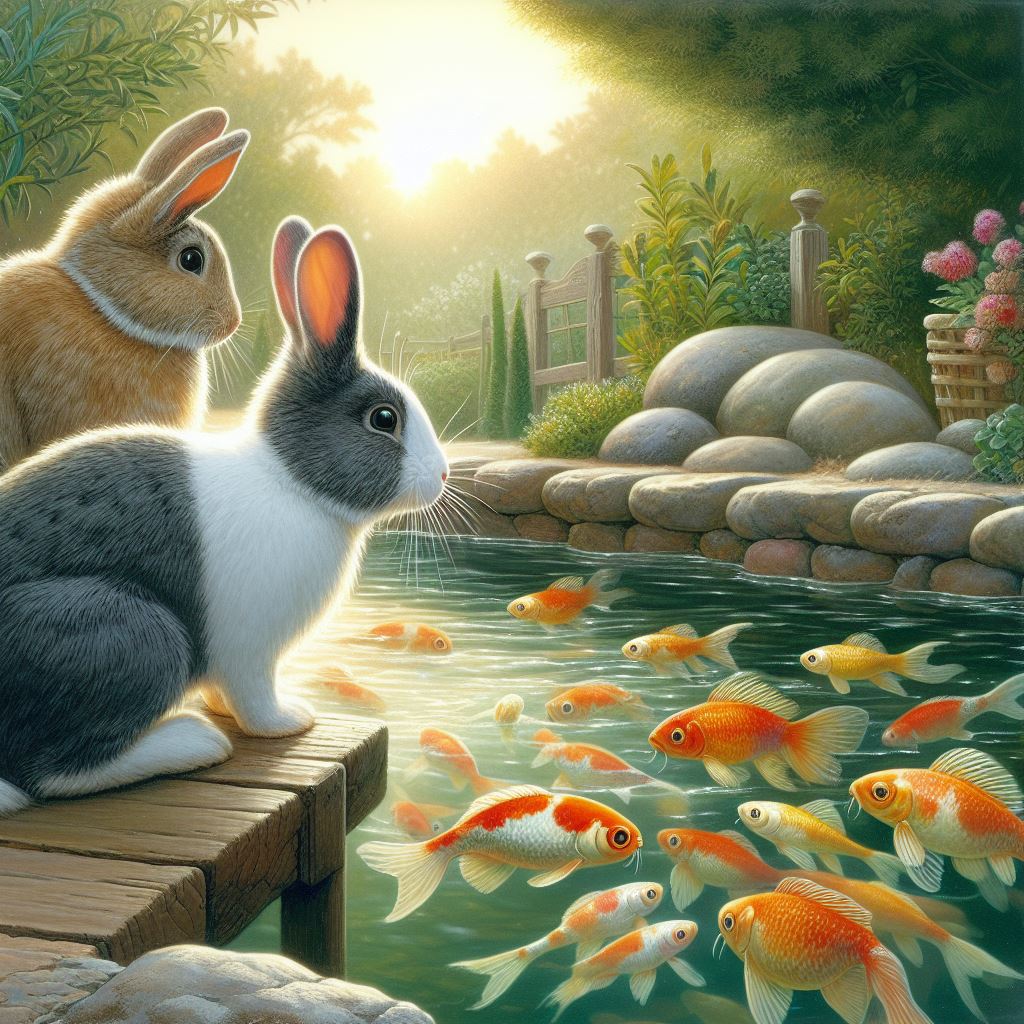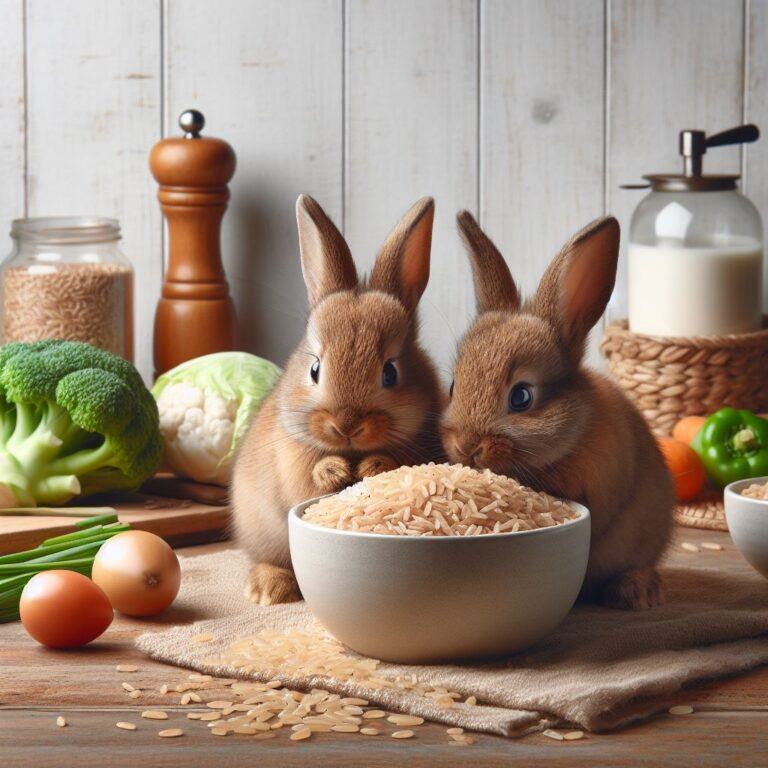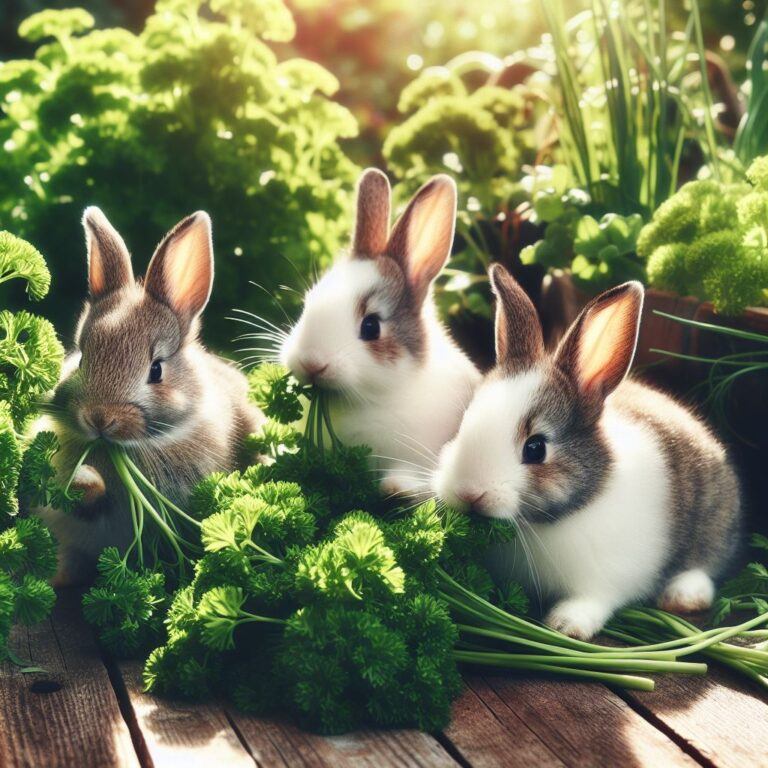Can Rabbits Safely Eat Fish
Rabbits CANNOT safely eat fish. It’s important to remember that rabbits are strict herbivores and their digestive systems are designed for plant-based diets only. Feeding fish to a rabbit can cause significant harm because their bodies aren’t equipped to handle animal proteins and fats.
Rabbits live best on a diet composed primarily of hay, supplemented with vegetables such as bell peppers or broccoli and a small amount of pellets.
The fibrous nature of their natural food promotes dental health and prevents obesity, both common issues in domestic rabbits.
When considering the question of fish in a rabbit’s diet, just think about what they would naturally eat! In the wild, rabbits forage for grasses and herbs, not for aquatic life.
Veterinary advice is unanimous in warning against feeding fish to rabbits. The rabbit’s gastrointestinal tract can suffer from digesting such an unnatural food source, leading to serious health consequences.
The Dangers of Feeding Fish to Rabbits
I want to stress the importance of understanding what rabbits should and shouldn’t eat. While they’re curious creatures, not everything is good for them.
The dangers of feeding fish to rabbits are significant because of their sensitive digestive systems.
First off, rabbits have a specialized gut that’s designed to process high-fiber, low-fat, plant-based foods. If you introduce fish, which is high in protein and fat and completely absent in fiber, you disrupt their normal digestive process.
This can lead to serious digestive issues like gastrointestinal stasis, a life-threatening condition that can shut down a rabbit’s digestive system.
The nutritional imbalances that come from feeding rabbits fish can have lasting impacts. Fish is not a natural part of a rabbit’s diet, and because of this, it can lead to deficiencies in essential nutrients that rabbits typically acquire from their regular diet.
Over time, this can cause a lot of health problems from poor dental health, due to a lack of fibrous materials to grind down their constantly growing teeth, to soft stools, and a compromised immune system.
Long-term health consequences for a rabbit that eats fish can include chronic diseases like liver or kidney problems.
These aren’t issues you’ll see overnight but can take weeks, months, or even years to manifest. By then, the damage might be irreparable.
It is vital to pay attention to what experts say, veterinarians and animal nutritionists do not recommend feeding fish to rabbits.
Their advice is supported by numerous studies and evidence from pet owners who have seen the adverse effects for themselves.
These professionals always recommend sticking to a diet that aligns with what rabbits consume in the wild which does not include fish or any other type of meat.
Healthy Alternatives to Fish for Your Rabbit’s Diet
As I mentioned before, rabbits thrive on a diet that simulates what they would naturally find in the wild.
This includes a variety of grasses, leafy greens, and vegetables that are rich in fiber and essential nutrients. Here are my top picks for keeping your rabbit healthy without fish.
Fiber is crucial in a rabbit’s diet to keep their digestive system running smoothly. High-fiber foods like Timothy hay should make up the bulk of their diet alongside fresh greens such as romaine lettuce, and spinach, also, some herbs like basil, and coriander can be beneficial.
Vegetables like bell peppers, courgettes, and asparagus provide your rabbit with vitamins and minerals without the risk of digestive distress that comes with animal proteins.
Always introduce new foods slowly to prevent upsetting your rabbit’s stomach.
For variety and as an occasional treat, fruits such as apples (without seeds), cranberries, blueberries, and melons can be given in small amounts.
However, due to their high sugar content, fruits should be given in very small quantities.
Before making any changes to your rabbit’s diet, it’s best to consult with a veterinarian who specializes in small animals.
They can provide personalized advice based on your rabbit’s age, size, and health, ensuring a meal plan that’s made for their optimal well-being.
While it may seem like a nice change to offer your rabbit foods like fish, stick to what’s tried and true.
A proper diet will lead to a happier, healthier rabbit, and plenty of joyful moments together.







